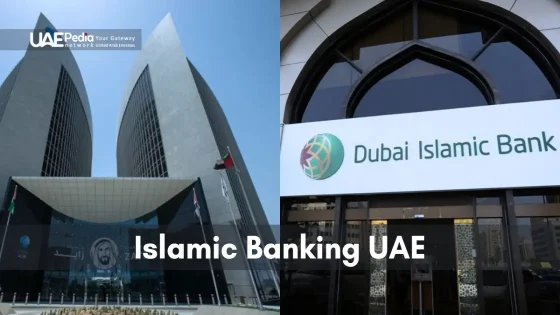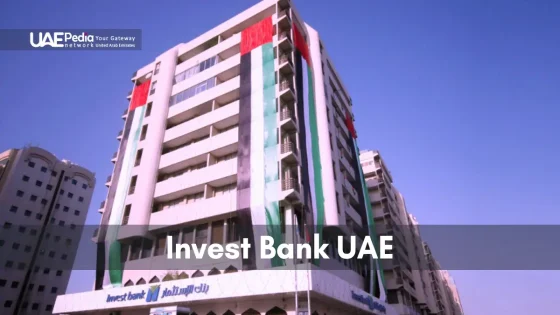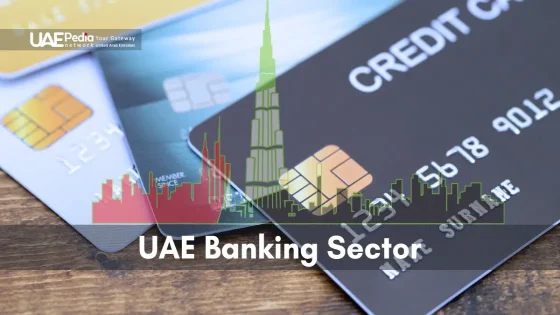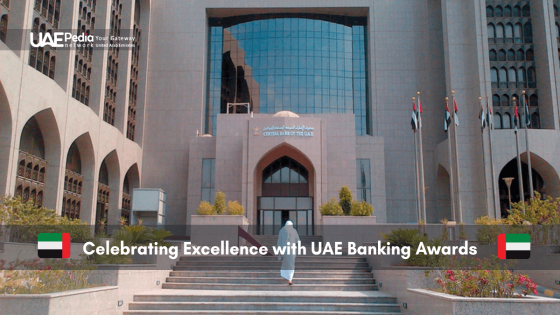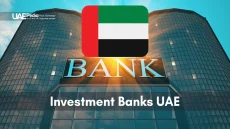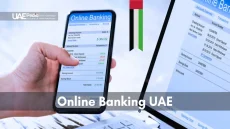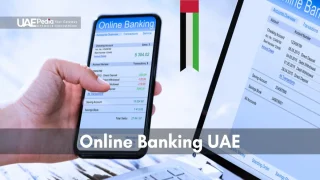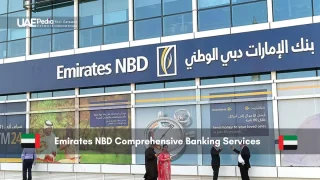How does a financial system work without interest? What makes Islamic banking in the UAE special? In a place where tall buildings and new ideas are everywhere, Islamic finance grows. It’s surprising that Islamic banking makes up over 20% of the UAE’s banking assets. The United Arab Emirates is a key place for Islamic finance. It mixes old rules with new banking ways. The Central Bank of the UAE makes sure Islamic banks follow Sharia rules. They also meet the financial needs of people and businesses.
At the heart of Islamic banking in the UAE is no interest (riba). Instead, banks and customers share profits. This method is used in many financial products, like mortgages and investments, all following Islamic law. UAE’s Islamic banks offer many Sharia-compliant services. They have accounts based on Qard and Mudarabah. There are also investment chances through Wakalah and Musharakah, for fair and clear financial deals.
Islamic banking in the UAE focuses on fairness and working together. Contracts are clear and open, without secrets. This focus on ethical banking makes Islamic finance popular in the UAE, among Muslims and non-Muslims alike.
UAE Islamic banks have pioneered innovative profit-sharing deposit structures like Mudaraba-based Rewards Accounts, where depositors become investment partners rather than creditors. These accounts utilize digitized ecosystems to provide returns through actual asset performance rather than predetermined interest. Ref.: “Products & Services | Business | Dubai Islamic Bank.” [!]
Fundamentals of Islamic Banking UAE and Legal Framework
The UAE is a big place for Islamic banking. It has strong laws for Sharia-compliant services. Let’s explore the main parts of this special banking system!
Federal Law No. 6 of 1985: The Foundation
Federal Law No. 6 of 1985 is key for UAE Sharia banking. It lets Islamic banks do many things, like regular banking and investing. This law makes sure all money work follows Islamic rules, helping the Islamic finance grow.
“read also: UAE Work Satisfaction Factors Among Professionals“
Central Bank: The Guardian of Standards
The UAE Central Bank is very important. It keeps Islamic banking standards high. It’s like a referee in a game, making sure everyone follows the rules. The Central Bank gives licenses, making sure Islamic banks follow Sharia in everything they do.
UAE Sharia governance requires banks to maintain independent supervisory boards approving all products. However, interpretations vary regionally—Malaysia permits more flexibility in Sukuk structures than GCC states, creating cross-border regulatory challenges for institutions like Emirates NBD Islamic. Ref.: “What is Islamic Banking? A Guide for Everyone.” [!]
Market Share: A Growing Force
Islamic banking in the UAE is getting bigger! By 2022, it was 23% of all banking assets, worth AED 845 billion. That’s a lot of money! This shows more people want Sharia-compliant banking in the UAE.
| Aspect | Details |
|---|---|
| Regulatory Framework | Federal Law No. 6 of 1985, UAE Central Bank |
| Market Share | 23% of total banking assets |
| Asset Value | AED 845 billion |
| Key Players | Emirates NBD, Dubai Islamic Bank, First Abu Dhabi Bank |
The rules for Islamic banks in UAE help them follow Sharia and be creative. With Tuum’s Islamic Banking and Finance solutions, the sector is ready for more growth. It’s a great time for Islamic finance in the UAE!
The UAE’s Islamic finance sector holds 50% of the GCC’s $2.5–$2.7 trillion assets (2024), with projected 15–17% annual growth through 2029. This dominance is fueled by sovereign sukuk programs like the UAE’s Dirham-denominated Islamic T-Sukuk and mega-project financing under national visions. Ref.: “Unlocking growth: Islamic finance sees global expansion.” [!]
Core Principles of Sharia-Compliant Banking
Islamic banking in the UAE follows strict rules to ensure Sharia compliance. UAE banks have unique principles that make them different from regular banks. Let’s explore the main points that shape Islamic financial products and services in the Emirates.
“read more: UAE Work Permits Application Process Guide“
Prohibition of Interest (Riba)
The main rule of UAE Islamic financial products is no interest. Banks use profit-sharing instead of interest. This matches Islamic teachings and makes the financial system fairer.
Overreliance on Murabahah (cost-plus sales) constitutes ~80% of UAE Islamic banks’ assets, deviating from ideal profit-loss-sharing models. This exposes institutions to inventory and pricing risks while creating debt structures resembling interest-based loans, potentially violating Sharia principles. Ref.: “Islamic Banking Products: Types of Financial Instruments/Mode.” [!]
Risk-Sharing Principles
Sharia compliance UAE banks believe in risk-sharing. Both the bank and customer share profits and losses. This helps with responsible lending and borrowing, making the economy stable.
“read more: UAE Job Interview Tips For First Timers”
Ethical Investment Guidelines
Islamic banking in the UAE has strict ethical rules. Banks don’t invest in things like gambling or alcohol. This focus on ethical investments matches the values of many UAE residents.
Sharia screening excludes companies with >5% revenue from prohibited activities (alcohol, gambling). UAE Islamic funds additionally apply ESG filters, aligning with global sustainable finance trends—evidenced by Indonesia’s $2 billion Sovereign Green Sukuk funding climate projects. Ref.: “Islamic finance products, services and contracts.” [!]
Transparency Requirements
UAE Islamic finance authorities require clear and open transactions. All financial dealings must be clear. This transparency builds trust between banks and customers, making the Islamic banking sector stronger.
These core principles guide UAE Islamic banking oversight. They ensure financial products and services stay true to Islamic values while meeting modern banking needs. The sector’s growth, with global Sharia-compliant assets reaching $3.96 trillion, shows the appeal of this ethical approach to finance.
Islamic Banking Products and Services Structure
Hey there, fellow finance explorers! Let’s explore Islamic banking in the UAE. It offers Sharia-compliant products that meet your financial needs. It’s like a halal financial buffet!
First, we have Islamic banking accounts that share profits. Your money goes into Sharia-approved activities. This way, you earn without breaking any rules. And for those dreaming of a home, Islamic mortgages work like co-ownership. You get to live in the whole place!
Diminishing Musharakah home financing requires banks to maintain dual roles (co-owner/lessor), creating operational complexity. Legal frameworks must enforce Sharia-compliant foreclosure procedures distinct from conventional mortgages, particularly regarding asset liquidation during defaults. Ref.: “Differences between Islamic Banking and Conventional Banking Products.” [!]
Now, let’s look at other cool products. Takaful is like Islamic insurance, based on mutual help. Islamic investment funds focus on Sharia-compliant assets like real estate. Big banks like Dubai Islamic Bank and Emirates NBD offer these, following UAE’s Islamic banking rules.
Read More:
The Islamic finance world is huge, with a $3 trillion value globally. It’s growing fast, with a 10% annual growth rate for a decade. Fintech is also joining, predicting another 10% growth in 2024. So, there’s something for everyone in this Sharia-compliant financial world!
